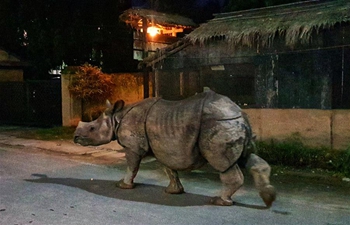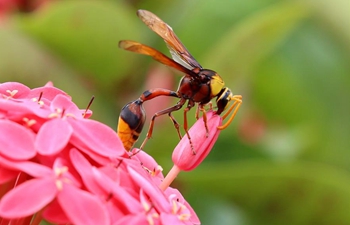SYDNEY, July 13 (Xinhua) -- With viral infections becoming more resistant to antibiotics, a researcher at an Australian university believes the answer to solving the problem may lie with cinnamon.
Dr. Sanjida Halim Topa at Swinburne University of Technology found that cinnamaldehyde, a component of cinnamon essential oil which is responsible for its unique taste, inhibited the development of biofilm - a bacteria that can cause persistent infections and resist even the most potent antibiotics.
According to the microbiologist, there is an urgent need to develop alternatives to antibiotics, in order to treat chronic biofilm-mediated superbugs.
"When bacteria makes biofilm it is more prone to build antibiotic resistance, so we are not looking at killing the bacteria because that can make it more aggressive, we are just trying to disrupt it," Topa explained to Xinhua on Friday.
"If children were playing and making a lot of mess, we can't really ask them not to play, but what we can do is introduce some rules to control their behaviour."
"What we are doing with cinnamon is kind of the same thing."
Although cinnamaldehyde is not widely used by the pharmaceutical industry, Topa believes it could have wide applications for many types of skin infection.
But asked whether sugar-coated cinnamon donuts may also hold the same potential health benefits as the highly concentrated oil, the researcher suggested that "perhaps a clinical trial is needed!"

















